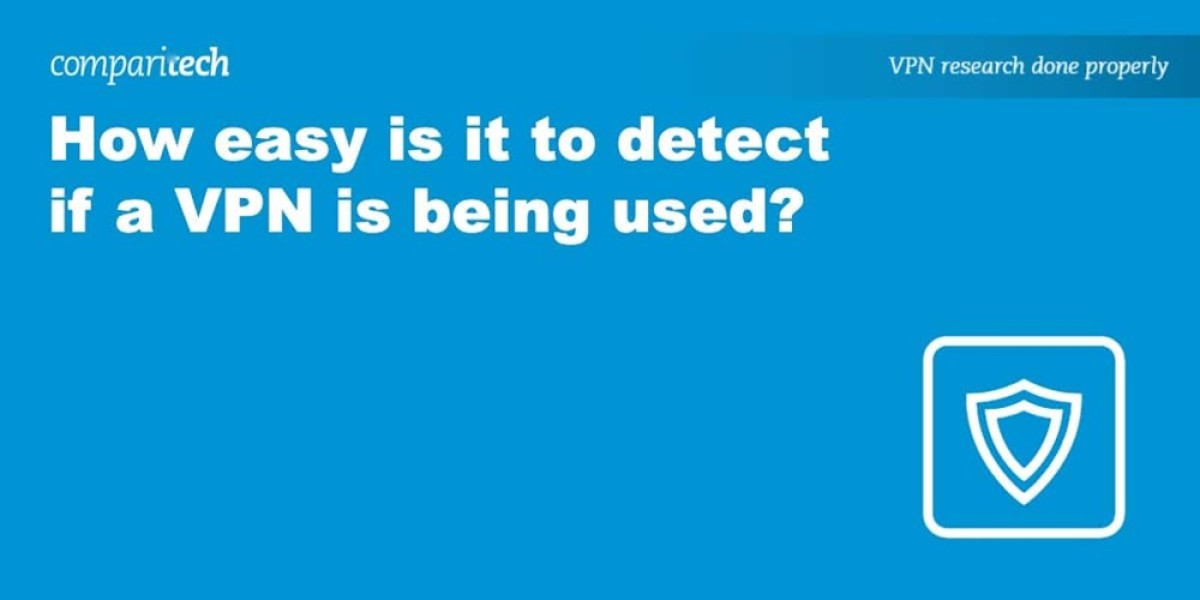VPN Detection Challenges
Accessing certain websites while using a VPN can sometimes be challenging, leading to the question of whether these sites are aware of your VPN usage. This concern is valid, as many online platforms have developed methods to detect and subsequently block VPN users.
Notably, many reputable VPN services are continuously evolving to stay ahead of these detection techniques. They have implemented advanced technologies that make it significantly more difficult for websites to identify VPN traffic. This is especially crucial in regions with strict internet regulations, such as China and Russia.
VPNs work by encrypting your internet traffic and routing it through remote servers, which masks your actual IP address. Instead of revealing your true location, the IP address displayed is that of the VPN server you are connected to.
Website operators often have legitimate reasons for wanting to identify the origin of their traffic. They aim to protect their content from theft, prevent bandwidth abuse by unauthorized users, and comply with regulations in various countries. Consequently, there are numerous tools developed by hardware and software companies designed to detect and obstruct VPN usage. As these tools gain traction, they may occasionally yield false positives but are still employed to safeguard the websites' integrity.
In reaction to the rise of VPN-blocking technologies, several companies have started creating solutions that bypass these restrictions. Furthermore, many VPN providers are actively devising methods to avoid detection, resulting in an ongoing technological tug-of-war that poses challenges for the evolving VPN sector.
To explore the effectiveness of a leading VPN provider, consider trying NordVPN, which offers a risk-free 30-day trial. This allows you to test its capabilities against various websites without any limitations for a month, ensuring you can determine if it meets your needs before committing.
There are no hidden conditions—should you find NordVPN unsuitable, simply reach out to their support within the trial period for a complete refund. Begin your NordVPN trial today.Using a VPN can sometimes lead to restricted access to certain websites, as more platforms are implementing measures to detect and block VPN traffic. If your current VPN successfully circumvents these blocks, you may regain access, prompting you to consider switching to a different service for improved accessibility.
The ongoing contest between VPN providers and detection technologies is quite unpredictable. Users may find that their access fluctuates, as one side's advancements may temporarily outpace the other's. VPN companies must remain aware of their customers' needs and motivations for using their services. While they will likely invest in technology to tackle these challenges, it’s essential to understand that responses to blocks may not be immediate.
Website administrators and third-party services, like Google, collect analytics that reveal visitor locations. This data can be valuable for various businesses; for instance, a local roofing contractor in Toronto might assess their website traffic to evaluate their advertising's reach. If the analytics show significant visitors from distant countries, such as Germany or New Zealand, it could indicate that many are using VPNs.
Every internet-enabled device has a unique IP address, and VPNs offer multiple servers in various locations, each with distinct IPs. Given the high volume of users on VPN servers, the data generated is substantially greater than that of a typical home or public Wi-Fi connection. Consequently, if a streaming service or similar business observes an unusually large amount of traffic from a specific IP address, it may deduce that this address is linked to a VPN, leading to the potential for blacklisting that IP.
Moreover, the frequency and volume of visits from a particular IP address can signal VPN usage. For example, if numerous users are accessing a streaming service simultaneously from the same IP, it raises suspicions of VPN activity. Locations like hotels or sports arenas may complicate this analysis due to their shared connections.
Additionally, if all transmitted data from an IP address is encrypted, it serves as another indicator of VPN use. Since any detection method can yield false positives, it is common for detection software to employ multiple techniques before deciding to blacklist an IP address.The Domain Name System (DNS) plays a crucial role in linking numeric IP addresses to more comprehensible domain names, such as “comparitech.com.” Typically, DNS requests are directed to your Internet Service Provider (ISP), which can track the websites you visit.
To enhance privacy, many VPN services operate their own DNS servers and implement features that prevent DNS requests from exiting the secure VPN tunnel. However, some VPNs may inadvertently leak DNS requests, a concern we address in our assessments.
When not using a VPN, your DNS queries are handled by the ISP's servers or potentially by alternate providers like Cloudflare. Additionally, certain mobile applications can bypass your VPN’s DNS configuration, revealing your actual location.
Another method employed by VPN detection tools is port blocking. If you've utilized file-sharing applications (like torrenting software or Usenet clients), you've likely configured them alongside your firewall or router to permit data through specific ports. Many VPNs utilize designated ports, which allows system administrators to monitor traffic and implement security measures that can filter or restrict access.
Websites often use cookies and fingerprinting techniques to recognize users, enhancing user security. In cybersecurity, fingerprinting refers to the collection of data that can pinpoint a specific user, including device type (phone, computer, tablet), operating system, browser, and more. Financial institutions, for example, leverage fingerprinting to thwart unauthorized access to accounts, requiring verification through security questions or codes sent to registered devices when abnormal access patterns are detected.
Unfortunately, fingerprinting can also be exploited for malicious purposes, including the identification of VPN users. Detection mechanisms can notice discrepancies in device time compared to the time zone of the VPN server.
Access policies vary among websites and applications; some permit global access, while others do not. If you were to log into an account (such as a bank, streaming service, or social media) from different countries in a short span, the site administrators would likely deduce that you are using a VPN.Using a VPN can enhance your online privacy, but there are limitations that can compromise its effectiveness.
For instance, if you log into accounts associated with tracking companies, such as Google or Facebook, your online activity may still be monitored. These platforms often gather extensive data about users, making your privacy efforts somewhat futile.
To maximize your VPN's effectiveness, consider switching to a more secure browser. Avoid mainstream options like Google Chrome or Microsoft Edge, and opt for alternatives such as Brave, Firefox, or Vivaldi—these options are free and prioritize user privacy.
Another important aspect to consider is your browser's location settings. If your browser permits sites to access your geographical location, it's advisable to adjust that setting. Browsers like Brave give you the choice to deny location access, which can prevent unwanted tracking, although it may limit certain site functionalities.
When configuring a new device, you can also stop Windows from tracking your location. This action may restrict the use of some applications, but it is a significant step toward enhancing your privacy. The same principle applies to mobile devices; using a different browser on Android, for example, can help maintain your anonymity.
For those seeking high levels of privacy, Tor is an option, though it significantly reduces browsing speed. The combination of a VPN and Tor is more suitable for individuals prioritizing privacy over speed.
If your browser reveals your actual location, it could contradict the location of your VPN server, which may alert websites to the use of a VPN.
Deep Packet Inspection (DPI) is a powerful method for detecting VPN usage but is primarily used in regions with strict internet regulations. DPI allows entities to analyze data packets more thoroughly than standard fingerprinting techniques. This method is employed by governments and corporations to mitigate cyber threats and enforce internet restrictions.
Countries with stringent internet policies, like China, utilize DPI to block access to particular websites and prevent the use of VPNs that circumvent their censorship.
As VPNs can undermine the revenue of various businesses, it is likely that more companies will adopt DPI to detect and restrict VPN usage. This is especially true for industries involved in distributing copyrighted content, which face legal limitations on where and how they can operate.
VPN Usage Restrictions Overview
Qobuz, a French-based music platform, has been in the business of selling high-resolution music files for several years. Recently, it expanded its offerings to include a streaming service. However, its services were initially unavailable in various countries, including the United States, until Qobuz established legal agreements that allowed for distribution in those regions. By 2017, Qobuz was able to launch its services in Germany, Italy, and Spain. Despite these expansions, individuals in restricted regions utilized VPNs to attempt access to Qobuz, often facing challenges in doing so. Given the potential legal implications with suppliers and foreign governments, Qobuz exemplifies the kind of business that must block VPN traffic.
There are several key motivations for website operators to restrict VPN usage:
Government Censorship: In nations with oppressive regimes, citizens are often barred from accessing many popular websites. Notably, North Korea and China impose stringent restrictions, with North Korea maintaining a minimal whitelist of accessible sites, while China outright bans VPNs alongside social media and streaming platforms. Such regimes may prohibit political dissent, certain adult content, information that contradicts state ideologies, and leaks regarding government operations. Internet service providers (ISPs) and private companies within these countries are compelled to adhere to government regulations, reinforcing the necessity to block VPN traffic.
Copyright Limitations on Streaming Services: Many users turn to VPNs to bypass geographical restrictions on content from streaming services that aren't legally permitted in their location. Popular platforms like BBC iPlayer, Hulu, and Netflix often enforce geographic limitations due to copyright laws governing their content.
Protection of Copyrighted Material: Since the late 1990s, major media and entertainment firms have been engaged in efforts to curb piracy of their products, including music, films, and software. They argue that piracy results in significant financial losses, based on the assumption that individuals who access pirated content would otherwise purchase it. This claim remains debated, though it has been evidenced that some consumers do indeed buy media when made available legally. The music and film industries have lobbied governments and ISPs for support in safeguarding their intellectual property, resulting in some ISPs warning users about service termination for engaging in illegal downloads. Educational institutions, wary of legal repercussions for facilitating unauthorized file sharing, also have valid reasons to restrict VPN access for students, who are often the most likely to engage in such activities.Compliance with local gambling regulations plays a crucial role for online casinos and sports betting platforms. These businesses operate under strict federal and state laws, which means they may refuse service to individuals in other regions if it jeopardizes their legal standing. Consequently, to safeguard their interests, they often restrict access to users employing VPNs.
In addition to legal concerns, businesses face various operational restrictions from their suppliers. This includes adhering to minimum advertised prices and maintaining geographic sales boundaries. Consequently, e-commerce platforms may display different prices based on the user's location, while others implement measures to reduce spam in their communication channels. Understanding the true location of their users is vital for companies, especially those battling credit card fraud, as they need to protect themselves from potential losses to card thieves.
Consider the situation of individuals who might want to obscure their whereabouts—like telling a spouse they're at the library when they’re actually somewhere else. Similarly, many users seek anonymity online, yet there are legitimate reasons for businesses to verify user locations.
To bypass restrictions and access blocked content via a VPN, users can utilize various tools known as VPN obfuscation techniques. Selecting a VPN that specializes in obfuscation is often the best approach. NordVPN is highly recommended for this purpose, while Surfshark offers a more budget-friendly alternative.
In the ongoing contest between VPN providers and detection systems, leading VPN services are well-equipped to innovate and create effective solutions.
To determine if someone is using a VPN, the simplest method involves checking their IP address. Numerous online tools can reveal the geographic location associated with an IP address. If it differs from the expected location of the individual, it's likely they are utilizing a VPN.
Additionally, by examining the Internet Service Provider (ISP) linked to the IP address, one can ascertain if it corresponds to a known VPN service. Frequent changes in a user's IP address can also indicate VPN usage.
VPN Detection Challenges
Detecting VPN usage can be a complex task.
Although advanced tools and software exist for this purpose, they are often beyond the reach of the average user.
Moreover, there are important legal and ethical factors to consider when it comes to monitoring VPN activity.
What is a Netflix VPN and How to Get One
A Netflix VPN is a virtual private network that enables users to access region-restricted content on Netflix by connecting to servers in various countries. By using a Netflix VPN, individuals can choose a reliable VPN provider that supports streaming, download and install the application, and connect to a server in the desired region, allowing them to log in to Netflix and enjoy content that may not be available in their own country.
Why Choose SafeShell as Your Netflix VPN?
If you're looking to access region-restricted content by using a Netflix VPN, consider the SafeShell VPN for an exceptional streaming experience. SafeShell VPN provides a host of benefits that make it a standout choice among VPN options. With high-speed servers optimized specifically for Netflix, it ensures seamless streaming without interruptions, offering lightning-fast connection speeds for buffer-free playback and high-definition streaming. The ability to connect multiple devices simultaneously across various operating systems, including Windows, macOS, iOS, and more, allows you to enjoy your favorite shows and movies on any device you prefer.
Additionally, SafeShell VPN's unique App Mode feature enables you to unlock and enjoy content from multiple regions at once, giving you the freedom to explore a vast range of streaming services and libraries. This, combined with lightning-fast speeds that eliminate buffering and throttling, ensures an unparalleled internet performance for all your streaming needs. Moreover, with SafeShell VPN's top-level security, including the proprietary ShellGuard VPN protocol and advanced encryption, your online privacy is safeguarded, allowing you to surf the web with confidence. With these advantages, SafeShell VPN ensures that netflix unblocked becomes a reality, providing a secure and stable solution for accessing a world of entertainment without restrictions.
A Step-by-Step Guide to Watch Netflix with SafeShell VPN
To enjoy Netflix content from different regions using SafeShell Netflix VPN , start by subscribing to SafeShell VPN. Visit their official website and select a subscription plan that suits your preferences and budget, then proceed by clicking the "Subscribe Now" button. Once subscribed, download and install the SafeShell VPN app or software onto your preferred device, whether it be Windows, macOS, iOS, Android, or another platform. This will set the foundation for accessing a wider array of Netflix content.
Next, launch the SafeShell VPN app and log into your account. You will be presented with two modes; we recommend selecting the APP mode to optimize your Netflix viewing experience. Afterward, browse through the list of available VPN servers and choose one located in the region whose Netflix library you wish to access, such as the US, UK, or Canada. Click "Connect" to establish a secure connection to your chosen server. Finally, open the Netflix app or website, log in to your Netflix account, and enjoy streaming the vast range of content available in the selected region, all made possible with SafeShell Netflix VPN.








